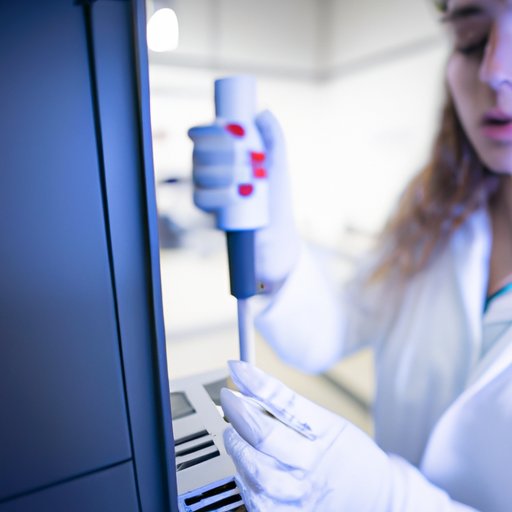Introduction
A degree in biomedical science can open up a range of exciting and rewarding career paths in the medical field. Biomedical science is the application of biological principles and techniques to medical practices, and it involves the study of how the human body works and how diseases develop and can be treated. A degree in biomedical science gives graduates the skills and knowledge needed to pursue a wide range of careers, such as working in a hospital setting, becoming a research scientist, pursuing a career in pharmaceuticals, exploring careers in public health, studying disease pathology, or applying biomedical science to clinical practice.
Working in a Hospital Setting
One of the most common career paths for those with a degree in biomedical science is to work in a hospital setting. According to the American Association of Medical Colleges (AAMC), biomedical scientists play an important role in providing “critical diagnostic and therapeutic services” in hospitals. Job opportunities in this field include laboratory technicians, medical researchers, and clinical scientists. To pursue these positions, biomedical science graduates need to have a good understanding of medical terminology, laboratory techniques, and data analysis, as well as excellent problem-solving skills.
Becoming a Research Scientist
Another option for those with a degree in biomedical science is to become a research scientist. Research scientists work in laboratories to investigate the causes of diseases and develop new treatments and therapies. There are a variety of research positions available, such as molecular biologists, biochemists, and bioinformaticians. To pursue a career in research, biomedical science graduates need to have a strong background in biology, chemistry, and mathematics, as well as excellent communication, writing, and analytical skills.

Pursuing a Career in Pharmaceuticals
Biomedical science graduates may also pursue a career in pharmaceuticals. In this field, they can work as drug developers, formulators, or regulatory affairs specialists. To succeed in this field, graduates need to have a good understanding of pharmacology, biochemistry, and physiology, as well as strong organizational and problem-solving skills. They should also have a comprehensive knowledge of drug regulations and safety protocols.

Exploring Careers in Public Health
Public health is another area where biomedical science graduates can find rewarding career opportunities. Public health professionals work to improve the overall health of communities by developing policies and programs that encourage healthy behaviors. To pursue a career in public health, biomedical science graduates need to have a good understanding of epidemiology, biostatistics, and health economics, as well as excellent communication and writing skills.
Studying Disease Pathology
Biomedical science graduates may also choose to pursue a career in disease pathology. Disease pathologists use their knowledge of biology and medicine to study the cause and progression of diseases. To become a disease pathologist, biomedical science graduates need to have a good understanding of immunology, microbiology, and genetics, as well as excellent analytical and problem-solving skills.

Applying Biomedical Science to Clinical Practice
Finally, biomedical science graduates may choose to apply their knowledge to clinical practice. In this field, they can work as medical technologists, medical laboratory scientists, or clinical laboratory scientists. To succeed in this field, biomedical science graduates need to have a good understanding of laboratory equipment and procedures, as well as excellent problem-solving and communication skills.
Conclusion
In conclusion, a degree in biomedical science can provide graduates with a range of exciting and rewarding career paths in the medical field. From working in a hospital setting to becoming a research scientist, pursuing a career in pharmaceuticals, exploring careers in public health, studying disease pathology, or applying biomedical science to clinical practice, there are many different options available to those with a degree in biomedical science. To get started in the field, it is important to gain experience through internships, volunteer work, and research projects, as well as to build a strong network of contacts.
(Note: Is this article not meeting your expectations? Do you have knowledge or insights to share? Unlock new opportunities and expand your reach by joining our authors team. Click Registration to join us and share your expertise with our readers.)
